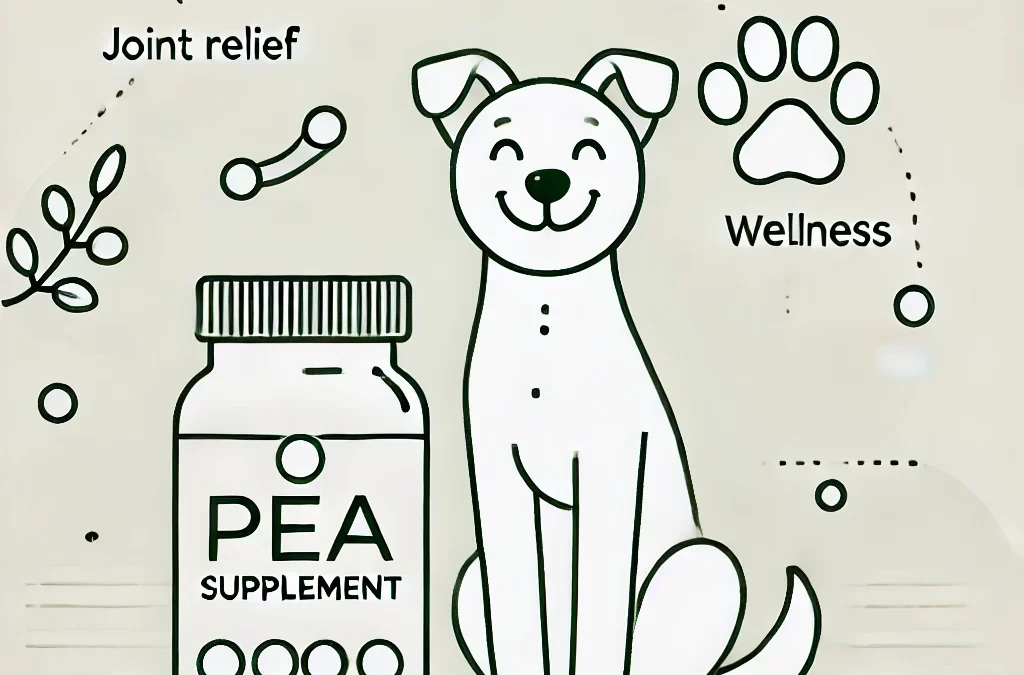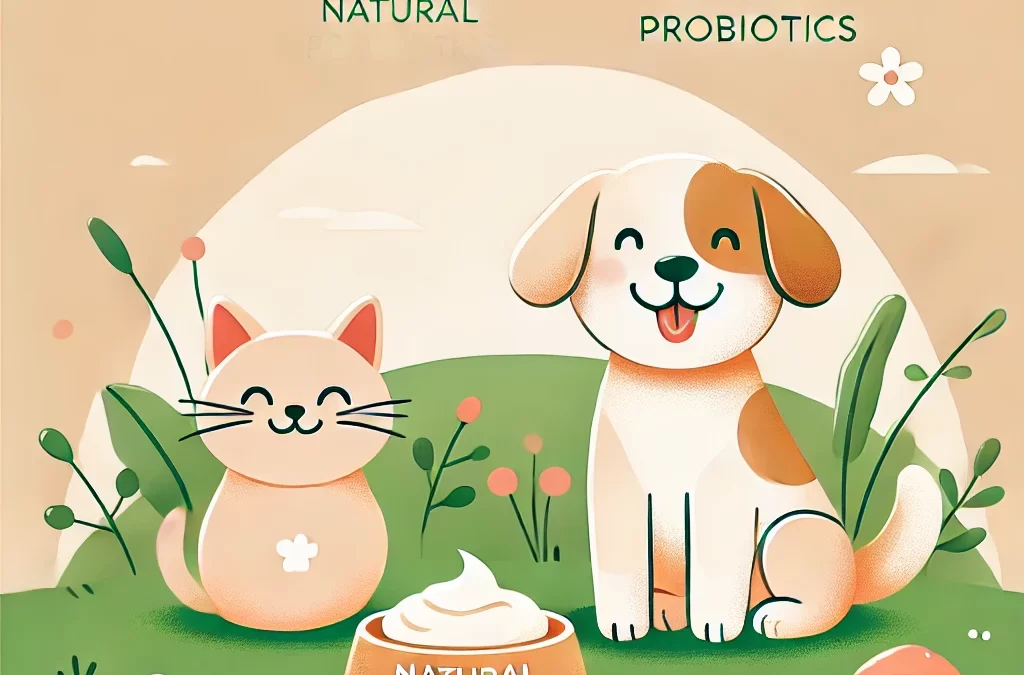
執筆者 TCMVET | 2024年11月14日 | 食と健康
ペットの飼い主として、私たちは犬の健康と幸福を高める自然な方法を常に探しています。新鮮な食事からホリスティックサプリメントまで、選択肢は多岐にわたります。近年注目を集めているサプリメントの 1 つがクロロフィルです。クロロフィルは、人間とペットの両方にとってのグリーンパワーハウスとしてよく知られています。しかし、なぜそんなに話題になっているのでしょうか。犬用クロロフィル タブレットの驚くべき利点と、それがあなたの子犬の次の健康の秘訣になる可能性がある理由について詳しく見ていきましょう。
そもそもクロロフィルとは何でしょうか?
クロロフィルは、植物に鮮やかな緑色を与える色素です。見た目の美しさだけでなく、クロロフィルは光合成において重要な役割を果たし、植物が太陽光を吸収してエネルギーに変換するのを助けます。しかし、この奇跡の分子の恩恵を受けるのは植物だけではありません。クロロフィルは長い間、人間の健康に良いことで称賛されてきましたが、今では犬の健康にも影響を与えています。
犬にクロロフィルタブレットを与える理由
錠剤の形のクロロフィルは、この強力なサプリメントを犬の食事に簡単に取り入れる方法を提供します。あなたの子犬が口臭、皮膚の炎症、消化器系の問題に悩まされているかどうかにかかわらず、クロロフィルはいくつかの一般的な問題に対処するのに役立ちます。その理由は次のとおりです。
- 自然な解毒 人間と同じように、犬も環境、食べ物、さらには薬から毒素を蓄積することがあります。クロロフィルは解毒作用があることで知られており、犬の体内から不純物を排出するのに役立ちます。クロロフィルを定期的に摂取すると、有害な毒素を中和し、全体的な健康状態を改善するのに役立ちます。
- 新鮮な空気 私たちは皆、一度は「犬の口臭」に悩まされたことがあると思いますが、クロロフィルは、あなたが知らなかった解決策かもしれません。クロロフィルには天然の消臭作用があり、犬の口臭をすっきりとさせます。臭いを単に隠すのではなく、中和することで、より持続的な解決策を提供します。
- 消化器系の健康を高める 犬が膨満感、便秘、不快感などの消化器系の問題を抱えている場合、クロロフィルがいくらかの緩和をもたらすかもしれません。クロロフィルにはマグネシウムが豊富に含まれており、消化を促進して定期的な排便を促すことで腸の健康をサポートします。また、炎症を抑える性質があり、炎症を起こした消化器系を落ち着かせることができます。
- 健康な皮膚と被毛の促進 光沢のある毛皮と健康な皮膚は、栄養が豊富な犬の証です。クロロフィルもこれに一役買っています。クロロフィルには、老化や皮膚損傷の主因である酸化ストレスと戦う抗酸化物質が豊富に含まれています。さらに、クロロフィルは、ほてりや皮膚炎などの一般的な皮膚疾患に伴う炎症を軽減するのに役立ちます。
- 免疫システムの改善 クロロフィルの免疫力を高める効果はよく知られており、人間だけでなく犬にも当てはまります。クロロフィルにはビタミン A、C、E、K が豊富に含まれており、これらは免疫システムの強化に重要な役割を果たします。定期的に摂取すると、犬が病気にかかりにくくなり、感染症からより早く回復するのに役立つ可能性があります。
クロロフィルタブレットを犬の日常生活に取り入れる方法
犬の食事に新しいサプリメントを導入するときは、常に注意が必要です。クロロフィル タブレットは犬にとって一般的に安全ですが、新しいサプリメント療法を始める前に獣医に相談することが重要です。獣医は犬の体重、年齢、健康上のニーズに基づいて適切な投与量を決定するのに役立ちます。
クロロフィルタブレットは、一般的に簡単に与えることができます。おやつとして与えたり、犬の食べ物に混ぜたり、水に混ぜたりするだけで済みます。多くのタブレットは、犬が緑のおいしさを嫌がらないように、口当たりの良さを考慮して作られています。
あなたの犬にとってクロロフィルは適切でしょうか?
クロロフィル タブレットには多くの潜在的な利点がありますが、万能薬ではありません。犬はそれぞれ個性があり、ある犬に効くものが別の犬には効かないこともあるということを覚えておくことが重要です。クロロフィルは、獣医による治療の代わりとしてではなく、バランスのとれた栄養価の高い食事の補助として使用するのが最適です。
愛犬が慢性的な健康問題を抱えている場合や、クロロフィルが愛犬の特定のニーズに適しているかどうかわからない場合は、必ず獣医師に相談することをお勧めします。獣医師は、特定のクロロフィルサプリメントを勧めたり、愛犬の健康に最適な総合的なアプローチを見つけるためのアドバイスをしてくれるかもしれません。
結論: 大きな可能性を秘めたグリーンサプリメント
クロロフィル タブレットは、犬の健康管理にシンプルかつ強力な効果をもたらします。息を爽やかにしたり、免疫力を高めたり、消化器官の健康を促進したり、毛並みを輝かせたりと、この緑色のタブレットはまさにあなたが探していた秘密の成分かもしれません。次回ペット サプリメントを探すときは、クロロフィルを試してみることを検討してください。これは、より健康で幸せな子犬への小さな一歩です。

執筆者 TCMVET | 2024年11月13日 | 食と健康
パルミトイルエタノールアミド(PEA)は、その天然の鎮痛作用と抗炎症作用により、犬のケアの世界で人気が高まっています。もともと体内で生成される脂肪酸アミドとして発見されたPEAは、脳や免疫系を含むさまざまな組織に存在するエンドカンナビノイド様化合物です。卵や大豆などの食品に含まれるこのユニークな化合物は、人間と動物の両方において、痛みの管理をサポートし、炎症を軽減する潜在的な効果があることがわかっています。しかし、それは私たちの犬の仲間にとって何を意味するのでしょうか?
PEA とは何ですか? なぜ犬にとって有用なのですか?
PEA は、炎症や痛みに対する反応として、人間と犬の体内で自然に生成されます。内因性化合物である PEA は、エンドカンナビノイド システムと連携して、精神作用を起こさずに炎症や痛みの知覚を調整します。このため、特に長期使用の場合、従来の医薬品に比べてペットにとってより安全な代替品となります。
犬にとってのPEAの主な利点:
- 痛みの緩和: PEA は神経系の受容体と相互作用し、不快感を軽減する自然な手段を提供します。
- 抗炎症作用: 体の免疫反応に作用して炎症を軽減し、関節炎、皮膚炎、その他の炎症性疾患に苦しむ犬に効果があります。
- Improved Quality of Life: PEA は痛みや炎症を軽減することで、可動性、エネルギー レベル、全体的な健康状態を改善する可能性があります。
PEA はどのように機能しますか?
他の鎮痛剤とは異なり、PEA は痛みの信号を直接ブロックしません。代わりに、「アントラージュ効果」と呼ばれるものに作用し、痛みや炎症を調節する自然なプロセスを強化します。その作用を簡単に説明します。
- カンナビノイド受容体との相互作用PEA は免疫系内のカンナビノイド受容体 (CB2 受容体) と間接的に相互作用し、バランスの取れた免疫反応を促進します。
- 炎症酵素の阻害: 炎症を促進する酵素を阻害し、体の自然治癒力がより効果的に働くようにします。
- 肥満細胞の安定化PEA は、傷害や炎症に反応してヒスタミンを放出する免疫細胞である肥満細胞を安定させ、炎症に関連する不快感を軽減します。
PEA は犬のどのような症状の管理に役立ちますか?
PEA は、さまざまな慢性疾患を抱える犬に効果がある可能性があります。
- 関節炎: 抗炎症作用により、関節の炎症や硬直に悩む犬に効果があります。
- Skin Conditions慢性皮膚炎を患っている犬は、かゆみや炎症が軽減されることがあります。
- 神経疾患: いくつかの研究では、PEA は過剰に活動する神経細胞を落ち着かせることで、神経関連の痛みを抱える犬に効果があるかもしれないと示唆されています。
- 手術後の回復PEA の鎮痛作用は、手術後の回復を早め、痛みの管理をサポートする可能性があります。
PEA を安全に使用するには: 用量と注意事項
PEA は一般的に忍容性が良好ですが、安全なアプローチに従うことが重要です。
- 獣医に相談する: 特に犬が他の薬を服用している場合は、PEA を犬の日常の食事に取り入れる前に必ず獣医師に相談してください。
- ゆっくり始めましょう: PEA を少量ずつ摂取し、反応がないか監視してください。PEA は通常、錠剤、粉末、または噛める形で提供されており、体重に基づいて投与量が推奨されます。
- 観察して調整する: 犬の反応を監視し、獣医の監督下で必要に応じて投与量を調整してください。
あなたの犬に適したPEAサプリメントを選ぶ
すべての PEA サプリメントが同じというわけではありません。PEA 製品を選択するときは、次の点に注目してください。
- 純度と品質: 純度が検査され、汚染物質が含まれていないサプリメントを選択してください。
- 微粉化形態この形態の PEA は生物学的利用能が高く、犬の体内により効果的に吸収されます。
- 犬専用製品一部のブランドでは、適切な投与量と配合を保証するために、ペット専用に PEA を設計しています。
最終的な考察: ペットケアにおけるPEAの将来
より多くのペットオーナーが愛犬の生活を豊かにするための自然な選択肢を求める中、PEA は有望な選択肢として目立っています。痛みの緩和と炎症管理に対する PEA の多面的なアプローチは、高齢のペット、慢性疾患のペット、そして健康のために安全で優しいサポートを必要とするあらゆる犬に役立ちます。
研究が進み、ペットに特化した処方が増えれば、PEA はまもなくホリスティック ペット ケアの定番となるかもしれません。独自のメカニズムと実証済みの安全性により、従来の医薬品の副作用なしに犬の快適さと活力をサポートする、現実的で革新的な選択肢となります。

執筆者 TCMVET | 2024年11月13日 | 食と健康
人間と同様、ペットもプロバイオティクスから大きな恩恵を受けることができます。プロバイオティクスは、腸の健康、免疫、全体的な健康をサポートする「善玉菌」です。市販のプロバイオティクスは人気がありますが、天然のプロバイオティクスも効果的で総合的なアプローチとして注目されています。この記事では、天然のプロバイオティクスとは何か、どこで見つけられるか、そしてペットの健康を自然に高める方法について詳しく説明します。
1. ペットのための天然プロバイオティクスとは何ですか?
- 意味天然プロバイオティクスは、天然発酵食品、ハーブ、植物に含まれる生きた有益な細菌です。
- 仕組みこれらの微生物は腸内細菌叢のバランスを整え、消化を改善し、免疫反応を高め、気分にも良い影響を与えることができます。
- 市販のプロバイオティクスとの違い: 天然プロバイオティクスは自然食品から採取され、加工が少なく、より自然に近いソリューションを提供します。
2. ペットにとっての天然プロバイオティクスの利点:
- 消化の改善プロバイオティクスは、食物の分解、栄養素の吸収、ガスや下痢などの消化器系の問題の軽減に役立ちます。
- より強い免疫力: 腸内微生物叢のバランスが整うと免疫システムが強化され、ペットがより効果的に感染症と戦うことができます。
- アレルギー緩和プロバイオティクスを定期的に摂取すると、多くの免疫反応の源である腸の炎症が軽減され、皮膚アレルギーを緩和することができます。
- 気分と行動研究により、腸の健康と気分の間には関連があることが示されており、プロバイオティクスがペットに鎮静効果をもたらす可能性があることが示唆されています。
3. ペットのための天然プロバイオティクスの供給源:
- ヨーグルトとケフィア: プレーンな無糖ヨーグルトやケフィアには、次のようなプロバイオティクスが豊富に含まれています。 ラクトバチルス・アシドフィルス そして ビフィズス菌これらは少量で安全な量であれば、消化器系の健康をサポートすることができます。
- 発酵野菜ザワークラウト(無塩)などの発酵野菜を少量摂取するとプロバイオティクスが摂取できますが、摂取は慎重に行う必要があります。
- アップルサイダービネガー生のリンゴ酢には酵素と有益なバクテリアが含まれていますが、消化不良を防ぐために使用前に薄める必要があります。
- ハーブと土壌生物: タンポポの根やチコリの根などの特定のハーブには、有益なバクテリアを養うプレバイオティクスが含まれています。さらに、ペットに安全な有機土壌に含まれる土壌ベースのプロバイオティクスは、腸の健康を自然にサポートします。
4. ペットの食事に天然プロバイオティクスを取り入れる方法
- 小さく始める: 少量から与え、消化不良や反応がないか監視してください。
- 観察して調整する: ペットに効果があると思われる場合は、獣医師のアドバイスに従って、徐々に頻度や量を増やしてください。
- 一貫性が鍵: 天然のプロバイオティクスを定期的に、一貫して摂取すると、最良の結果が得られる傾向があるため、ペットの日常生活に合った方法を見つけてください。
5. サプリメントよりも天然プロバイオティクスを検討すべき場合
- 敏感なペット向け: 市販のプロバイオティクスサプリメントをうまく摂取できないペットは、天然の供給源によく反応する可能性があります。
- 抗生物質治療後: 抗生物質を服用した後、天然のプロバイオティクスが腸内細菌叢の回復に役立ちます。
- 毎日の健康維持予防的なアプローチをお探しの場合、天然のプロバイオティクスは毎日の健康のための穏やかで効果的な選択肢となります。
6. 安全に関するヒントと注意点
- 添加物を避ける: 砂糖や人工香料などの添加物はペットに害を及ぼす可能性があるため、プレーン、無香料、無糖のプロバイオティクス源を使用してください。
- Consult Your Vet: 特にペットに基礎疾患やアレルギーがある場合は、必ず獣医師にご相談ください。
- 副作用を監視する: まれに、ペットの体が新しいプロバイオティクスに適応する過程で、軽い下痢や膨満感を感じることがあります。
結論
天然のプロバイオティクスは、消化、免疫、さらには気分をサポートし、ペットの健康を総合的に高める方法を提供します。安全で天然のプロバイオティクス源を導入することで、より自然な健康への道が開かれます。忍耐と一貫性があれば、これらの天然のヘルパーは、ペットのより幸せで健康的な生活に欠かせないものになります。

執筆者 TCMVET | 2024年11月9日 | 食と健康
犬が癌と診断されると、飼い主は、食事を通して犬の健康を最もよくサポートする方法を含め、さまざまな疑問や懸念に直面します。適切な栄養は、この困難な時期に体力を維持し、免疫システムをサポートし、全体的な生活の質を高める上で重要な役割を果たします。この記事では、癌に罹った犬に食事を与えるためのユニークで証拠に基づいたアプローチについて説明します。
がんを患う犬のためのカスタマイズされた栄養の重要性
がんは犬の代謝や栄養ニーズを変化させ、標準的な食事では不十分になります。カスタマイズされた食事は、体重管理、筋肉量の維持、病気と闘うために必要なエネルギーの供給に役立ちます。がんを患う犬に食事を与えることは、治癒と活力をサポートする栄養豊富な食事を確実に与えることです。
考慮すべき主要な栄養成分
- 高品質のタンパク質: がんやその治療により、筋肉が衰えることがよくあります。赤身の肉、魚、卵など、消化しやすい高品質のタンパク質源を摂取すると、筋肉量を維持するのに役立ちます。
- 健康的な脂肪魚油、亜麻仁油、オキアミ油などに含まれるオメガ 3 脂肪酸は、抗炎症作用があることで知られており、がん細胞の増殖を遅らせる可能性があります。がん細胞はブドウ糖に大きく依存しているため、これらの脂肪は主要なエネルギー源として機能します。
- 低炭水化物摂取: がん細胞はブドウ糖を栄養源とするため、炭水化物の摂取量を減らすと、がん細胞の増殖を遅らせることができます。代わりに、必要に応じて、特定の野菜など、グリセミック指数の低い複合炭水化物を摂取するようにしてください。
- 抗酸化物質ブルーベリー、ほうれん草、ケールなど、抗酸化物質を豊富に含む食品を摂取しましょう。抗酸化物質はフリーラジカルを中和し、免疫システムをサポートします。
- 必須ビタミンとミネラル亜鉛、セレン、ビタミン C と E は免疫の健康に貢献し、酸化ストレスと戦います。
がんを患う犬のための革新的な食事アイデア
1. 自家製抗がん食
バランスの取れた自家製の食事を作ることで、材料と栄養プロファイルを完全に管理できます。推奨されるレシピには次のものが含まれます。
- 赤身のタンパク質: 茹でた鶏肉または七面鳥。
- 健康的な脂肪: 魚油を少量かけます。
- 野菜: ブロッコリー、ケール、またはニンジンを軽く蒸してビタミンを補給します。
- サプリメント腸の健康のために、犬用マルチビタミンやプロバイオティクスを追加することを検討してください。
2. 市販のがん専用ドッグフード
がんを患う犬のために特別に作られた、高品質の市販のドッグフードがあります。低炭水化物、高タンパク質、オメガ 3 脂肪酸を重視した配合のものを探してください。市販のどのフードも、完全でバランスのとれた栄養に関する米国飼料検査官協会 (AAFCO) の基準を満たしていることを確認してください。
避けるべき食品
- 糖分の多いお菓子: 砂糖の多いスナックや高炭水化物食品は、ブドウ糖を栄養源とする癌細胞にエネルギーを与える可能性があります。
- 高度に加工された食品これらの食品には、犬の健康に悪影響を及ぼす可能性のある保存料や添加物が含まれていることがよくあります。
- 有毒な食品: ブドウ、チョコレート、タマネギ、ニンニクなど、健康上の問題を悪化させる可能性がある既知の有毒食品は避けてください。
全体的かつ支援的なアプローチの統合
食生活の変更に加えて、次のような支持療法の導入を検討してください。
- ハーブサプリメント: 漢方薬に詳しい獣医師に相談して、ウコン(クルクミン)などのサプリメントや、霊芝やマイタケなどの薬用キノコについて調べてみましょう。
- 水分補給: 犬が十分に水分補給されていることを確認してください。チキンや骨から作ったスープは、水分摂取を促すと同時に必須ミネラルを補給できます。
- 消化酵素これらは消化を助け、特に治療に関連した消化器系の問題を抱えている犬にとって栄養の吸収を改善します。
最終的な考え
がんを患う犬に食事を与えるには、変化する栄養ニーズを考慮した、思慮深くバランスのとれたアプローチが必要です。高品質のタンパク質、健康的な脂肪、低炭水化物、抗酸化物質が豊富な食品に重点を置くことで、飼い主は犬の健康をサポートし、獣医による治療を補う食事を作ることができます。犬の食事に大幅な変更を加える前には必ず獣医師に相談し、犬の個々のニーズと治療計画に合致していることを確認してください。
総合的で栄養豊富な食事を与えることは、ガンとの闘いの間、愛犬の活力と快適さを維持するのに大きな違いをもたらします。適切な食事を選ぶことで、闘病期間中、意味のあるサポートとケアを提供できます。
執筆者 TCMVET | 2024年11月9日 | 食と健康
犬の癌はペットの飼い主にとって悲惨な診断であり、多くの人が愛するペットの生活の質を高めるために代替療法や補助療法を模索しています。注目を集めている食事療法の 1 つがケトジェニック (ケト) ダイエットで、癌に罹った犬のサポートに潜在的な効果があるかどうかが研究されています。この記事では、ケトダイエットの特徴、癌に罹った犬に効果がある理由、ペットの飼い主にとって重要な考慮事項について詳しく説明します。
ケトダイエットを理解する
ケトダイエットは、高脂肪、低炭水化物の食事プランで、体の代謝をグルコース(糖)からケトン(肝臓で脂肪が代謝されるときに生成される化合物)に切り替えます。人間の場合、ケトーシスと呼ばれるこの代謝状態は、減量や認知機能の向上など、多くの健康上の利点に関連しています。犬の場合も、原則は同じです。炭水化物の摂取を減らしてグルコースで繁殖する癌細胞を飢えさせ、健康的な脂肪の摂取を増やすことで全体的な健康をサポートします。
ケトダイエットががんに与える影響
がん細胞には独特の代謝要件があり、通常、解糖(エネルギーを得るためにブドウ糖を分解するプロセス)に正常細胞よりもはるかに高い割合で依存しています。ケトダイエットは、炭水化物の摂取を制限し、脂肪の摂取を増やすことで、がん細胞から好むエネルギー源を奪い、一方で健康な細胞がエネルギーとして利用できるケトンを提供することを目指しています。この変化により、腫瘍の成長が遅くなり、犬のエネルギーレベルが向上し、全体的な健康状態が向上する可能性があります。
がんを患う犬にとってのケトダイエットの利点
- 炎症の軽減魚油に含まれるオメガ3脂肪酸などの健康的な脂肪は、犬の炎症を軽減し、がんに伴う不快感を和らげる可能性がある。
- エネルギーレベルの向上: 癌に罹った犬は、病気とその治療のせいで無気力になることがよくあります。ケトンは体と脳の効率的な燃料源として機能し、エネルギーを増強する可能性があります。
- 免疫機能の強化健康的な脂肪が豊富で炎症を起こす炭水化物が少ない食事は、免疫システムを強化し、犬の二次感染を防ぐのに役立ちます。
- 体重管理の管理: がん治療は体重の減少や増加につながる可能性があります。ケトダイエットの高脂肪成分は、治療を受けている犬にとって重要な、安定した体重の維持に役立ちます。
考慮事項とリスク
ケトダイエットは潜在的なメリットをもたらすかもしれませんが、リスクがないわけではなく、慎重に管理する必要があります。
- 栄養バランス: ケトプランに従いながら、犬がバランスの取れた食事を確実に摂取できるようにすることが重要です。欠乏症を避けるために、獣医師または獣医栄養士に相談することが重要です。
- 膵炎のリスク: 膵炎になりやすい犬には、高脂肪食は適さない可能性があります。綿密な監視が必要です。
- 移行期間: 犬をケトダイエットに切り替えるには、胃腸の不調を避けるために段階的な移行が必要です。体がブドウ糖の代わりにケトン体を使用することに適応するため、このプロセスには数週間かかる場合があります。
犬にケトダイエットを実践する方法
がんを患っている犬にケトダイエットを検討している場合は、始めるためのヒントをいくつかご紹介します。
- Consult Your Veterinarian: これは強調しすぎることはありません。専門家はあなたの犬がケトダイエットに適しているかどうかを判断し、進捗状況を監視してくれます。
- ダイエット計画を立てる: 魚油、鶏脂、ココナッツ油などの高品質の動物性脂肪を中心に摂取します。適量のタンパク質とごく少量の炭水化物を摂取します。
- サプリメントを取り入れるオメガ 3 脂肪酸、ビタミン E、プロバイオティクスなどの栄養補助食品は、食事を補完し、その効果を高めることができます。
- ケトンレベルを監視する: ペットの飼い主は、血中ケトンメーターを使用して、愛犬がケトーシス状態を維持していることを確認できます。これにより、必要に応じて食事を調整できます。
実際の成功事例
ケトダイエットに切り替えた後、飼い犬に良い変化が見られたという飼い主からの逸話的な報告があります。エネルギーレベルの向上、腫瘍の成長率の低下、全体的な活力の向上が認められたケースもあります。このテーマに関する科学的研究はまだ進行中ですが、予備的な結果と個人の証言から、このアプローチは犬の癌治療に検討する価値がある可能性があることがわかります。
最終的な考え
ケトダイエットはガンの治療薬ではありませんが、ガンの管理に強力な補助ツールとなり得ます。健康な細胞に栄養を与えながらガン細胞の増殖を阻害する代替エネルギー源を提供することで、ケトダイエットは総合的な治療計画において役割を果たすことができます。常に獣医の専門家と緊密に協力し、愛犬の独自のニーズに合わせた安全で効果的な計画を立ててください。思慮深く実施し、注意深く監視することで、ケトダイエットはガンと闘う犬とその献身的な飼い主に希望とサポートを与えることができます。

執筆者 TCMVET | 2024年10月29日 | 食と健康
犬のために手作りの食事を用意することを選ぶと、犬の特定のニーズに合わせて食事をカスタマイズできる機会が得られ、やりがいを感じることができます。ただし、犬には独自の栄養要件があり、バランスの取れた食事が犬の健康に不可欠であることを認識することが重要です。市販の食事から手作りの食事に切り替える前に、犬の食事ニーズを満たしていることを確認するために計画を立て、専門家に相談することが重要です。
手作りドッグフードを選ぶ理由
手作りのドッグフードを選ぶと、それぞれの食事に何が含まれているかを正確に把握できるため、飼い主と愛犬の絆が強まります。手作りの食事には、市販のペットフードによく含まれる増量剤、保存料、人工成分が含まれていないことが多いため、健康に気を遣う飼い主にとって魅力的です。
手作りドッグフードに関する重要な考慮事項
- 獣医師に相談する
食事の変更については必ず獣医師に相談してください。獣医師は、犬特有の健康上のニーズ、潜在的な食事制限、健康目標などについてアドバイスしてくれます。犬に慢性的な健康問題、アレルギー、過敏症がある場合は、この相談が特に重要です。
- 獣医栄養士と協力する
獣医栄養士は、愛犬の必須栄養素のニーズをすべて満たすバランスの取れた手作りドッグフードプランの作成をお手伝いします。犬の食事は、タンパク質、健康的な脂肪、ビタミン、ミネラルを豊富に含む必要がありますが、カロリーと炭水化物も慎重に調整する必要があります。
- 栄養バランスを確保する
犬には、タンパク質源(鶏肉、牛肉、魚など)、健康的な脂肪、複合炭水化物(玄米やサツマイモなど)、野菜の組み合わせが必要です。不足分を補うために、犬用に特別に設計されたマルチビタミンサプリメントを追加することが推奨されることがよくあります。
犬のために料理をするときに避けるべきよくある間違い
- 過剰または不足した食事
食事量のコントロールは重要です。バランスの取れていない食事や食べ過ぎは体重の問題や健康上の問題につながる可能性があるため、犬の毎日のカロリー必要量を理解することが不可欠です。
- 安全でない原材料の添加
タマネギ、ニンニク、チョコレート、ブドウ、人工甘味料(キシリトールなど)など、犬にとって有毒な原材料は避けてください。新しい原材料を与える前には必ず二重チェックを行ってください。
- 定期健康診断を怠る
定期的な獣医による健康診断は、犬の健康と体重を監視するために不可欠です。自家製の食事は適切に管理しないと栄養不足につながることがあるため、継続的な監視が有益です。
手作りドッグフードの始め方
- 基本レシピから始める
赤身の肉、全粒穀物、犬に適した野菜を使った、シンプルでバランスの取れたレシピから始めましょう。高度に加工された食材は避け、栄養素を保つために新鮮な食品や軽く調理した食品を選びましょう。
- テストと調整
手作りの食事を与え始めたら、犬の反応、エネルギーレベル、便の硬さを観察してください。これらの指標は、時間をかけて犬の食事を微調整するのに役立ちます。
- 段階的な移行
消化不良を防ぐために、市販の食事から手作りの食事に数日かけて徐々に切り替えてください。まずは少量の手作りの食事を通常の食事に混ぜ、時間をかけて手作りの量を徐々に増やしてください。
愛犬のために料理をすることは、愛犬の健康と幸せに貢献する充実した方法です。適切な計画と指導があれば、手作りのドッグフードは愛犬が喜んで食べる栄養豊富でおいしい選択肢になります。愛犬の個々のニーズに合わせたバランスの取れた食事を確実に提供するために、獣医師や獣医栄養士との相談を優先してください。献身的に細部まで注意を払えば、愛犬の長期的な健康をサポートする手作りの食事を与えることができます。





